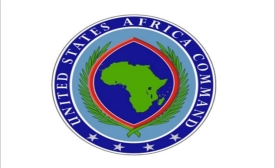Americas
This post was originally presented as a speech to the Taiwanese Ministry of Foreign Affairs in Taipei, Taiwan, on October 29, 2009, and is reproduced here with the permission of the author.
Undersecretary of State Judith McHale's October 15 speech to the 2009 global Public Affairs Officers conference provides some useful insights into PAOs' concerns and Secretary McHale's thinking.

The USC Center on Public Diplomacy and the USC Center for International Studies were pleased to host Daniel Volman for a roundtable on AFRICOM, the Obama Administration and U.S. Military activities in Africa. Daniel Volman is director of the African Security Research Project in Washington, DC.

The USC Center on Public Diplomacy is proud to co-sponsor this event as part of the USC Institute for Global Health Lecture Series: Visions for Change.







